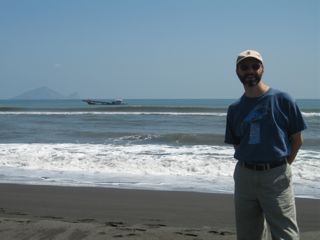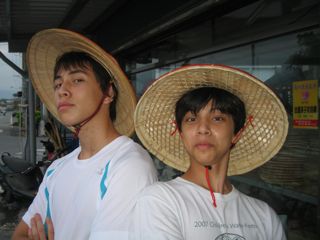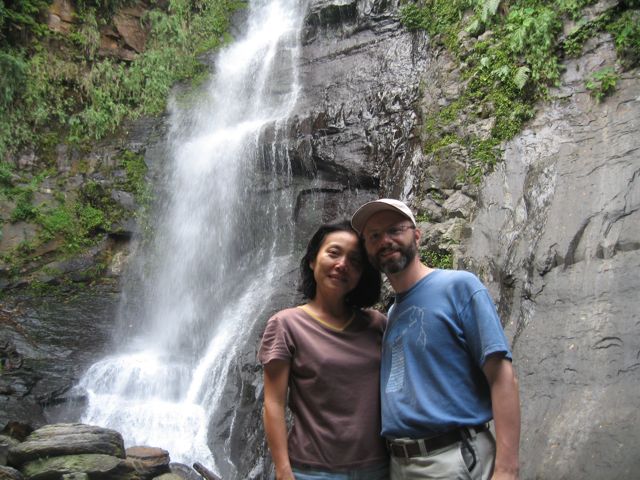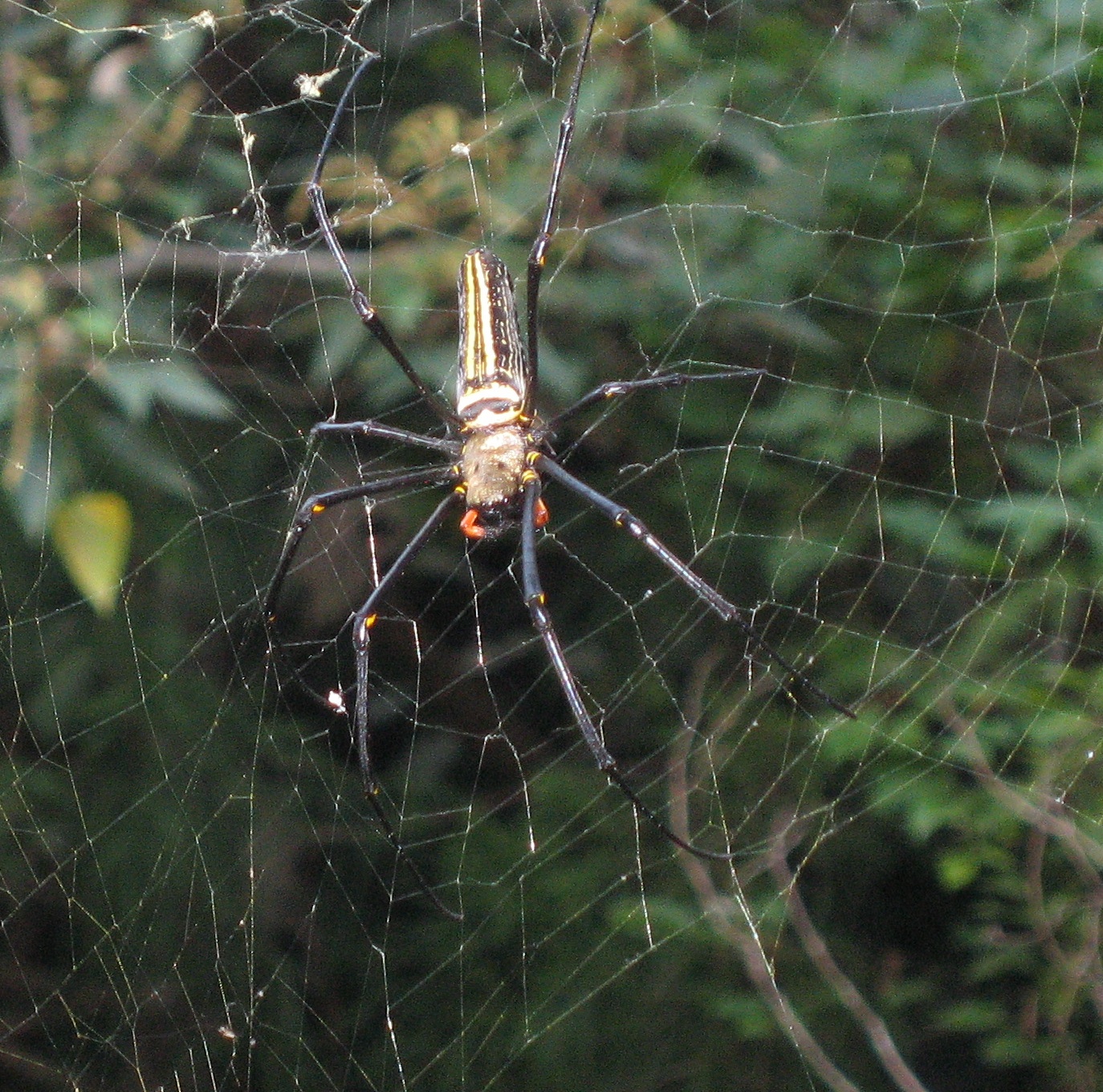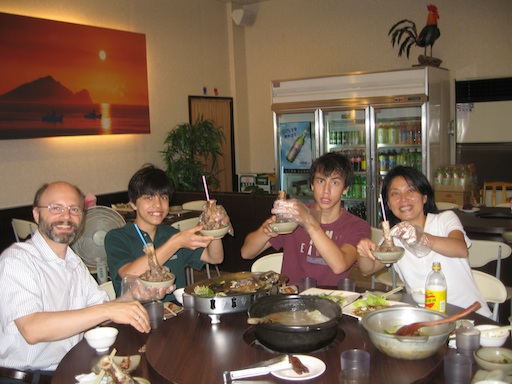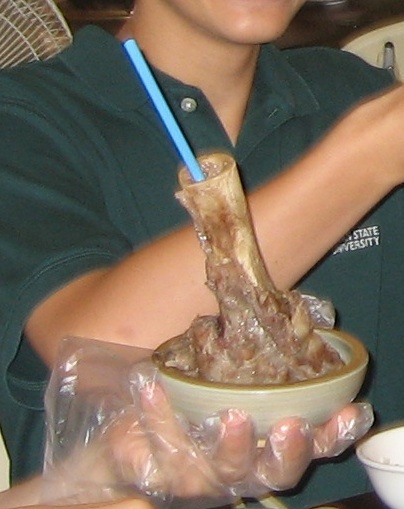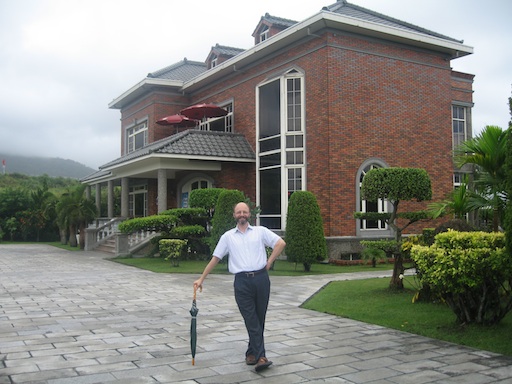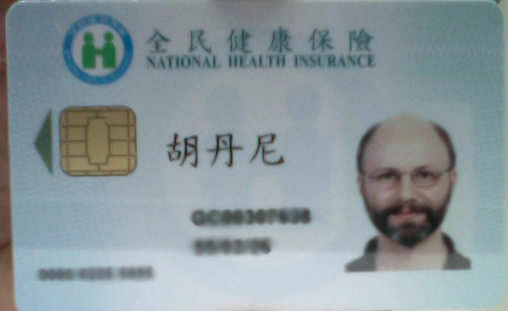This weekend we traveled to Taipei for a post-arrival orientation for all Fulbright scholars. Of course we have already been here for a month, but we were the exception. Most Fulbright awards begin on September 1. We had to be here earlier so that we could have the month of August to train and prepare for the school year.
So we met with the 40 or so other Fulbright scholars, who will be researching or teaching at universities throughout Taiwan. Many of them have already been to Taiwan before. Their research projects range from computer-aided costume design for theater programs to studying the relationship between marital status and criminal behavior. It was interesting hearing about the various projects that were funded by the Fulbright foundation.
As part of the orientation program, Dr. Tong-jong Chen, the Executive Director of the Foundation in Taiwan, invited me to present on the educational system in Taiwan. It was fun putting together a talk that drew on my knowledge of the schools in Taiwan, what I know of Stacy’s past, and our recent experiences with the public schools. I tried to keep the talk relevant to what the Fulbrighters will encounter in their interactions with local students and faculty. I think the talk went smoothly, and it was well-received.
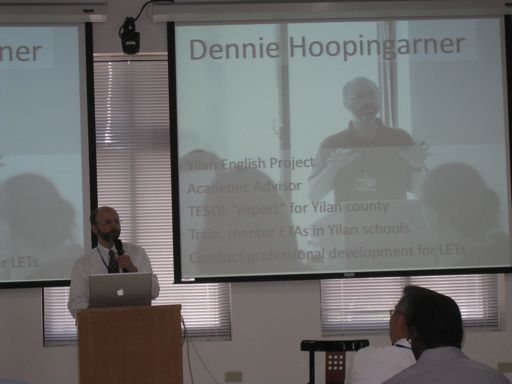
On Friday evening, there was a reception for all of the Fulbright awardees, hosted by the honorary chairman of the Taiwan Fulbright foundation, Dr William Stanton, who is the director of the American Institute in Taiwan, America’s unofficial embassy to Taiwan. I was impressed to hear Dr. Stanton speaking Chinese, and later, when talking with him, I learned that we were both studying Chinese in Taiwan at the same time in the 1980s.
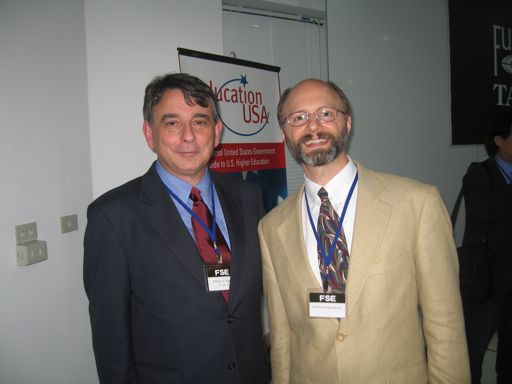
Me with Dr Stanton, Director of the American Institute in Taiwan (AIT)
I was also thrilled to meet some other people who are influential in the local government, including the former Director of the Government Information Office æ–°èžå±€, Dr. Yu-Ming Shaw 邵玉銘.

With Dr. Chen, Executive Director of the Foundation (and a graduate of MSU!!)
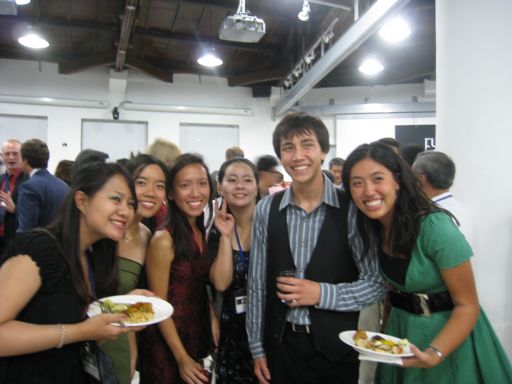
Ian’s having a great year, hanging out with so many pretty girls.
And the weekend wasn’t complete until we visited the CKS Memorial Hall, complete with a reproduction of the President’s office.
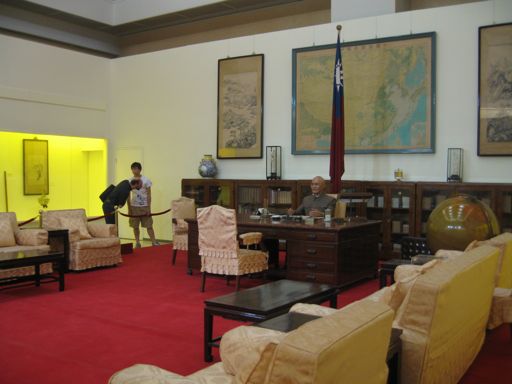
It was an intense weekend. It was a relief to get back to the office so I could relax. 😉
